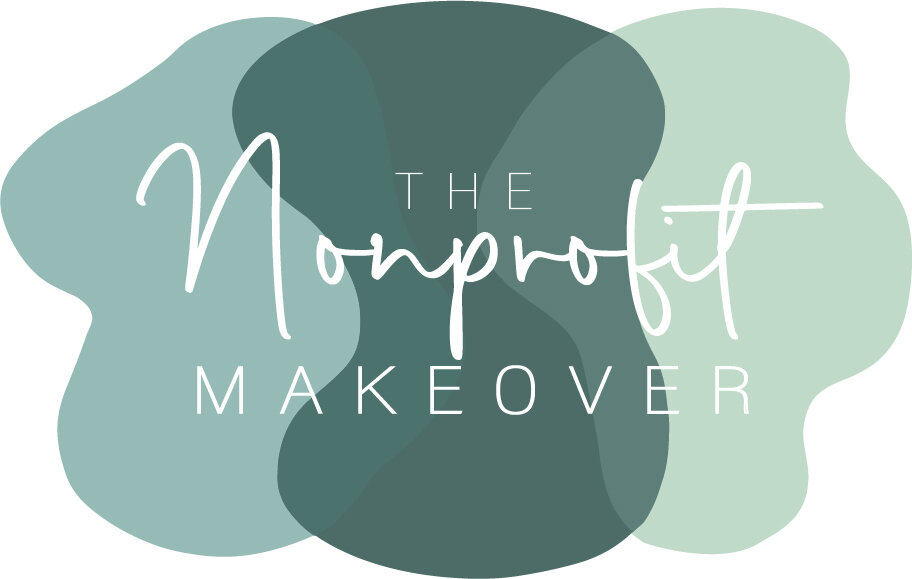The Intersection Between Domestic Violence and The Broken Nonprofit System
The signs have been there for years, but somehow along the way we forgot to address the elephant in the room.
When I transitioned into the nonprofit consulting space, I quickly realized how unhealthy the nonprofit industry was and unfortunately still is. For those who have experienced abuse like I did, you’d notice an eerily similar comparison between the nonprofit industry and toxic relationships. After scouring the internet to find other reads like this, I was surprised no one has taken on this issue. Fearless and unafraid - I did what I’ve always known do - break the silence against abuse.
Since starting The Nonprofit Makeover, more than a dozen former nonprofit staff and volunteers have contacted us to break their silence about the poor treatment they've received at reputable organizations and foundations across the country.
These stories and experiences often go untold because of fear of retaliation. Domestic violence offenders do the same thing - they silence their victims into submission.
Many people still believe domestic violence is just physical. But after years of education and public awareness campaigns, I’ve worked tirelessly to redefine and help communities reimagine the way they understand abuse. Domestic violence can come in a multitude of “invisible” forms - from emotional, mental, financial, verbal, or even sexual abuse. So how do we correlate abuse with an industry that is designed to serve others?
Simple, let’s take a minute to peel back the curtain and see what really happens behind those proverbial “closed doors.”
When donors contribute to a cause, they invest in the mission - the impact, the statistics, the heart wrenching testimonials and smiles that make them and their hearts feel good. This is what we call pulling on the “heart-strings.” In the nonprofit world, we do our best to showcase the impact your dollars do for our causes. When done right, nonprofits secure donor support. When done ineffectively, nonprofits operate from a place of tension, chaos, and ultimately poverty.
As a byproduct of inefficiency, poor leadership, and burnout - stress heightens and tensions flare. This is where the toxicity and abuse creep in.
To help our readers better understand the unfortunate parallel between domestic violence and nonprofits I’m going to break it down for you by warning signs or red flags. *puts domestic violence advocate hat on*
*Red Flags/Warning Signs: As psychotherapist Annette Nuñez, M.S., Ph.D., explains, red flags "give you a funny feeling that something isn't right." Just as you might "flag" something that you want to come back to, a red flag is kind of like putting a mental pin in a behavior you want to keep an eye on.
Warning Signs Breakdown for Nonprofits:
Manipulation: Belittling others opinions, gaslighting, cruel jokes and hurtful sarcasm, devaluing your achievements, superficial charm, false sympathy, micromanaging
Minimizing, Denying, Blaming: Shifting responsibility for inefficiency in the organization that may have been caused by them, denying their involvement in situations in the workplace that could be seen as a poor reflection of their behavior, denying any wrongdoing they may have caused, not taking responsibility for things that were associated with them, shifting focus or changing subjects to avoid conflict
Isolation: Secret board meetings, leadership pinpoints their “favorite” employees or volunteers and makes others feel less then, discourages volunteers and staff to not speak about or share things that are happening internally with the organization, micromanaging employees or volunteers - often threatening them in the process
Emotional Abuse: Name calling, humiliating team members in office meetings or behind closed doors, making someone feel like they are “crazy” or insignificant, putting someone down, humiliating someones ideas, starts rumors about you or others
Using Intimidation: Making someone feel afraid to share reviews about the organization because of the fear of retaliation or legal ramifications, board members may use their position to threaten or belittle employees or volunteers, board members may threaten to “air out others laundry to the community,” leadership may threaten to fire employees if they don’t do as they are told
Using Coercion and Threats: Threatening former volunteers with cease and desist letters, discrimination, sexual harassment, verbal harassament
Using Economic Abuse: Overworking employees outside of their normal business hours, forcing employees to go “beyond their job duties” without compensation, forcing employees to volunteer at work without pay
Using Privilege: Board of Directors overlooking team members because of gender, age, experience, or tenure. Leadership or board members not valuing or prioritizing diversity, equity, and inclusion and in turn feeling attacked for staff bringing these issues to the table, Non-BIPOC board of directors firing all people of color, silencing team members because “they can”
The parallels are uncanny. Now that you’ve seen the similarities, it is your responsibility to hold the nonprofits you support - accountable. Without communities raising the standard, nonprofits will continue to fly under the radar and mistreat the very people who dedicate their time, energy, and resource to great causes.
How do we fix this? For our nation to see change, we must retool the way nonprofits run, manage, and engage in the community. Leaders need to be held accountable, organizations must break the cycle of conformity and adopt new systems to ensure constant innovation to address social change, and society needs to understand that nonprofits need overhead, employees need higher salaries, and they need more qualified volunteer support in order to work more efficiently.
If you have a story to share about a nonprofit you volunteered or worked with, we’d love to hear it! As a commitment to transparency, we’ve created a new submission process to encourage current or former volunteer/staff to anonymously shed light on the unresolved issues many nonprofits still face. Click here to submit your story.


